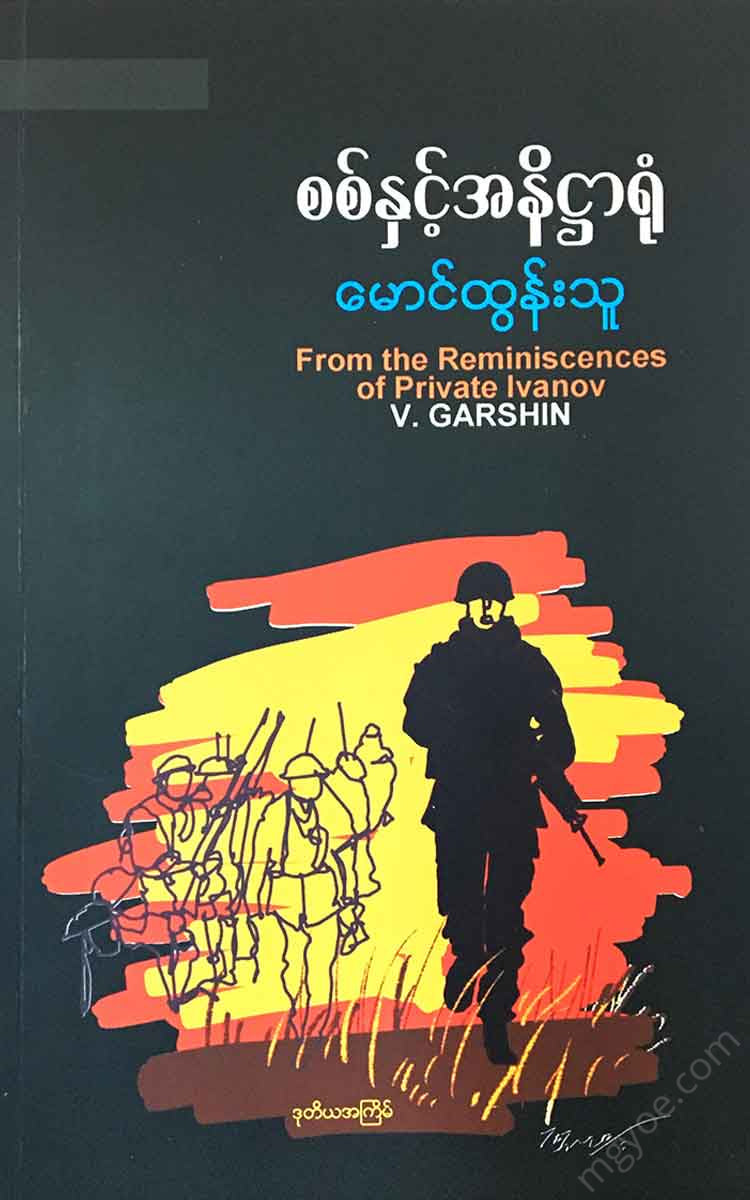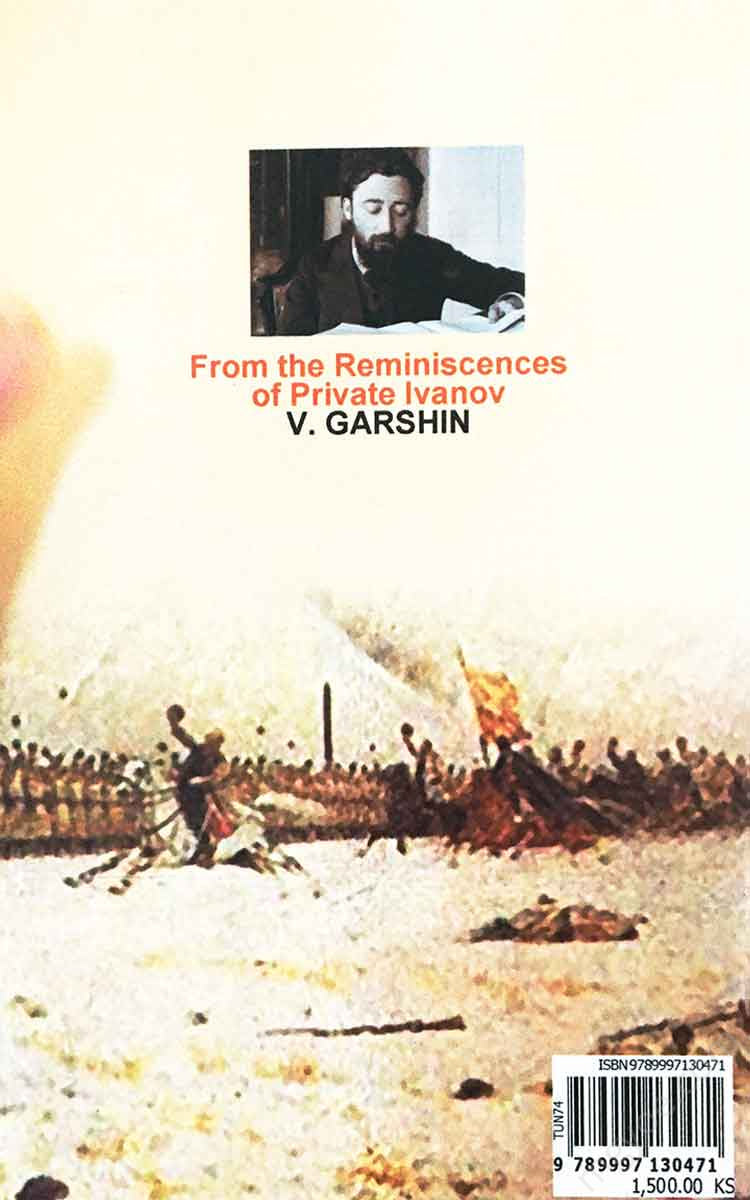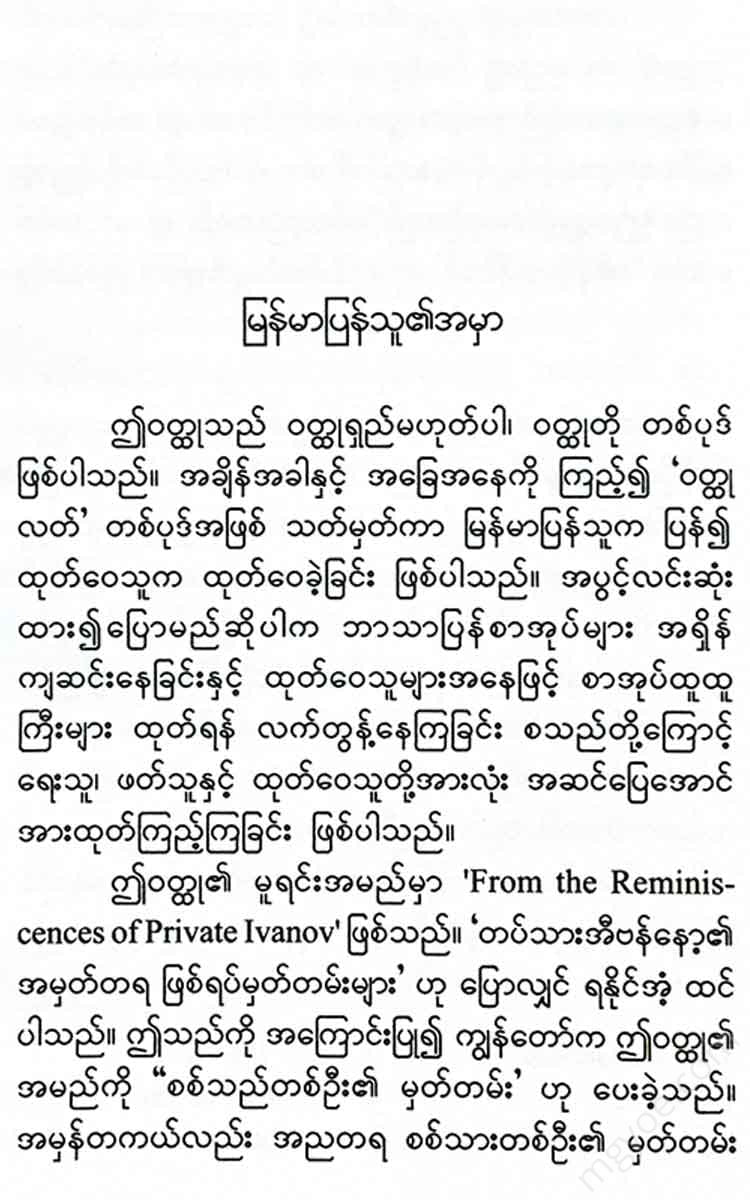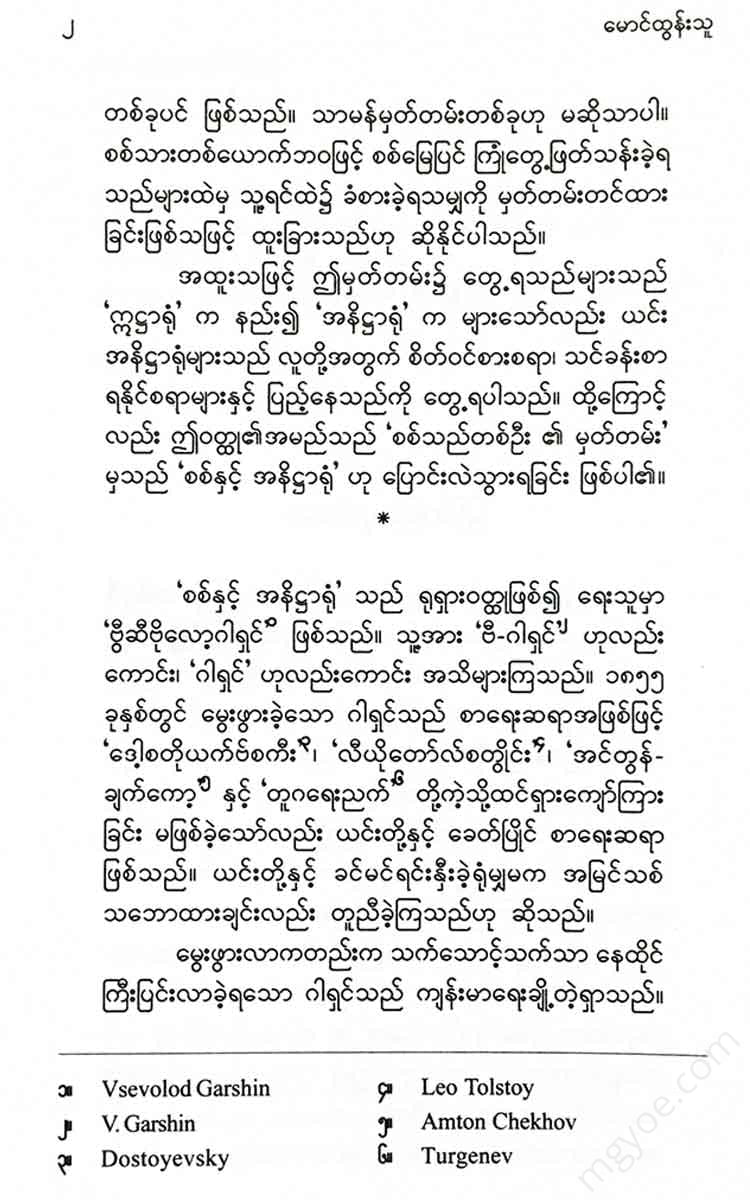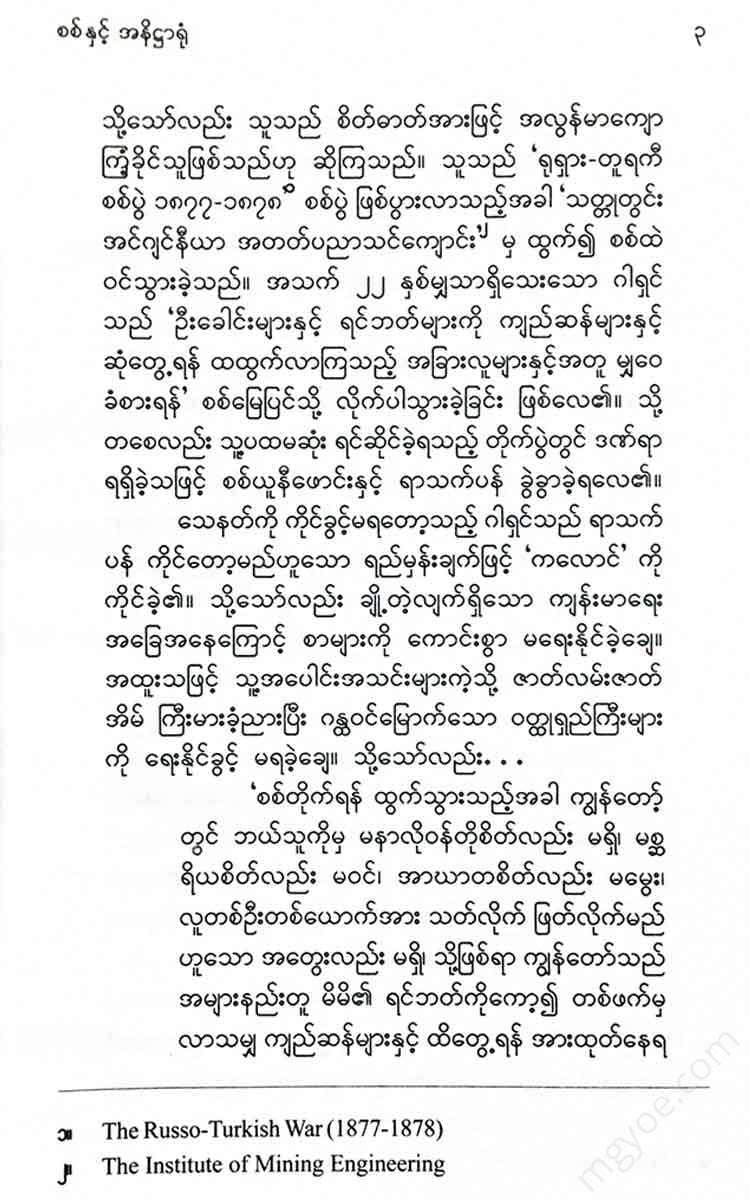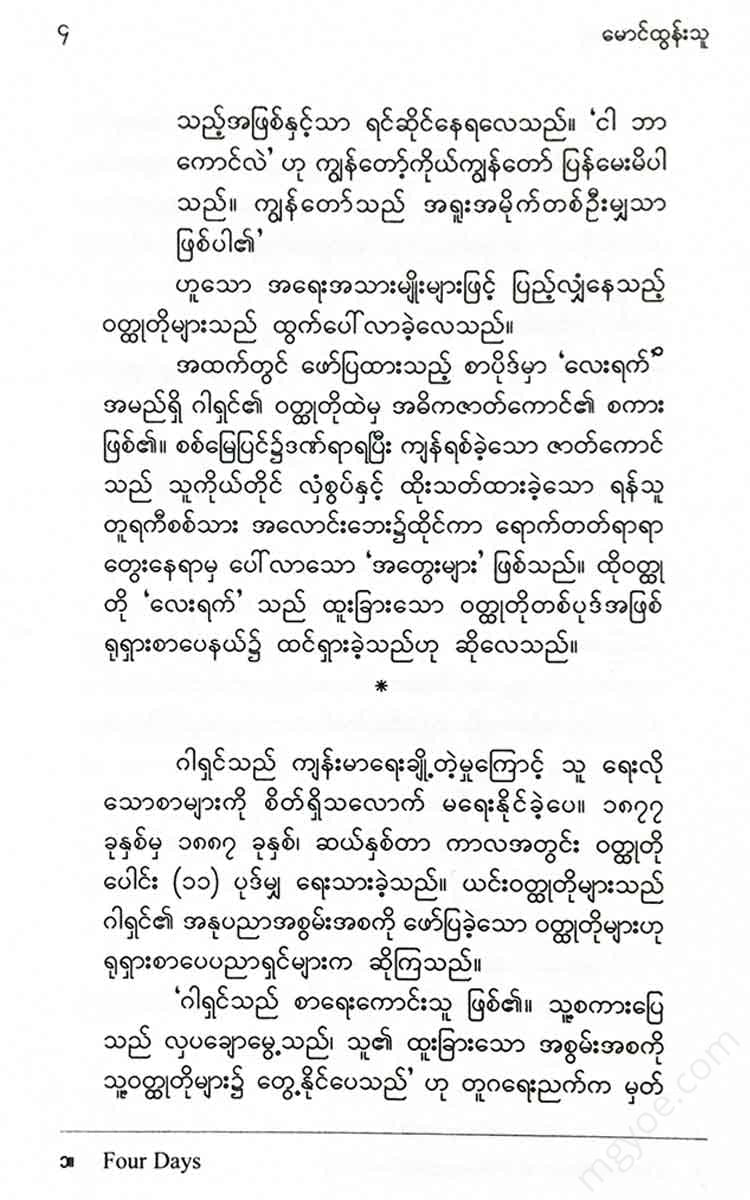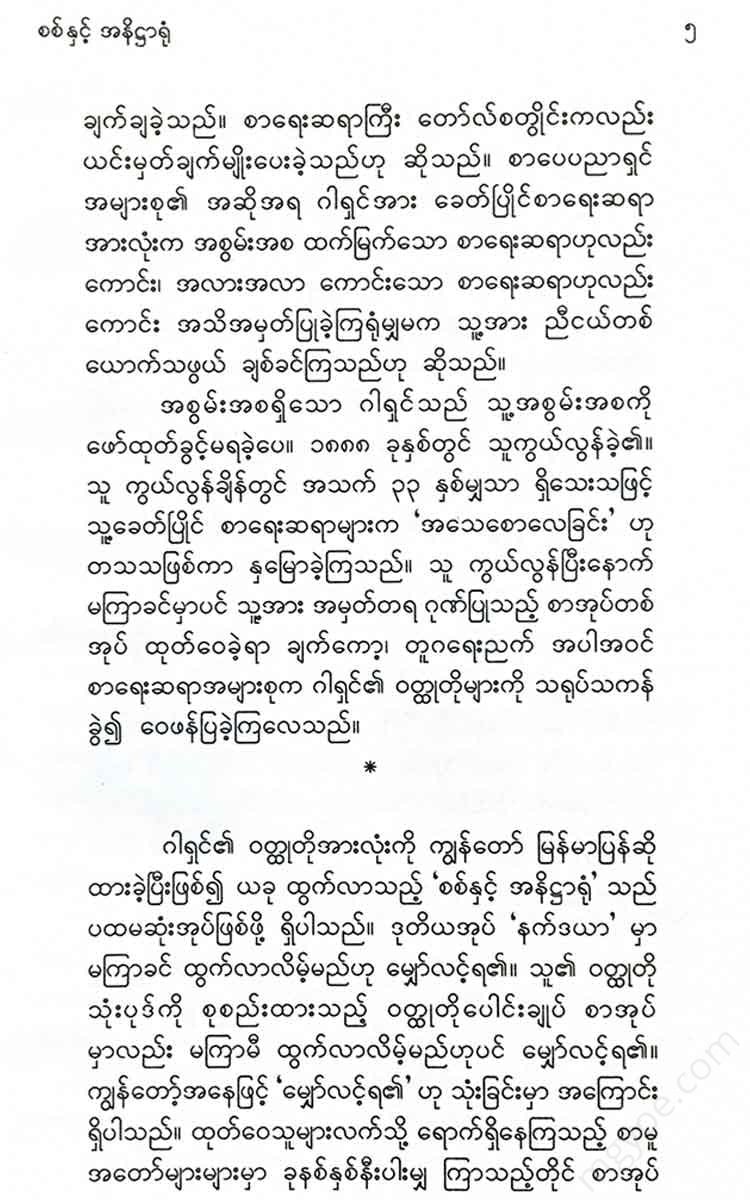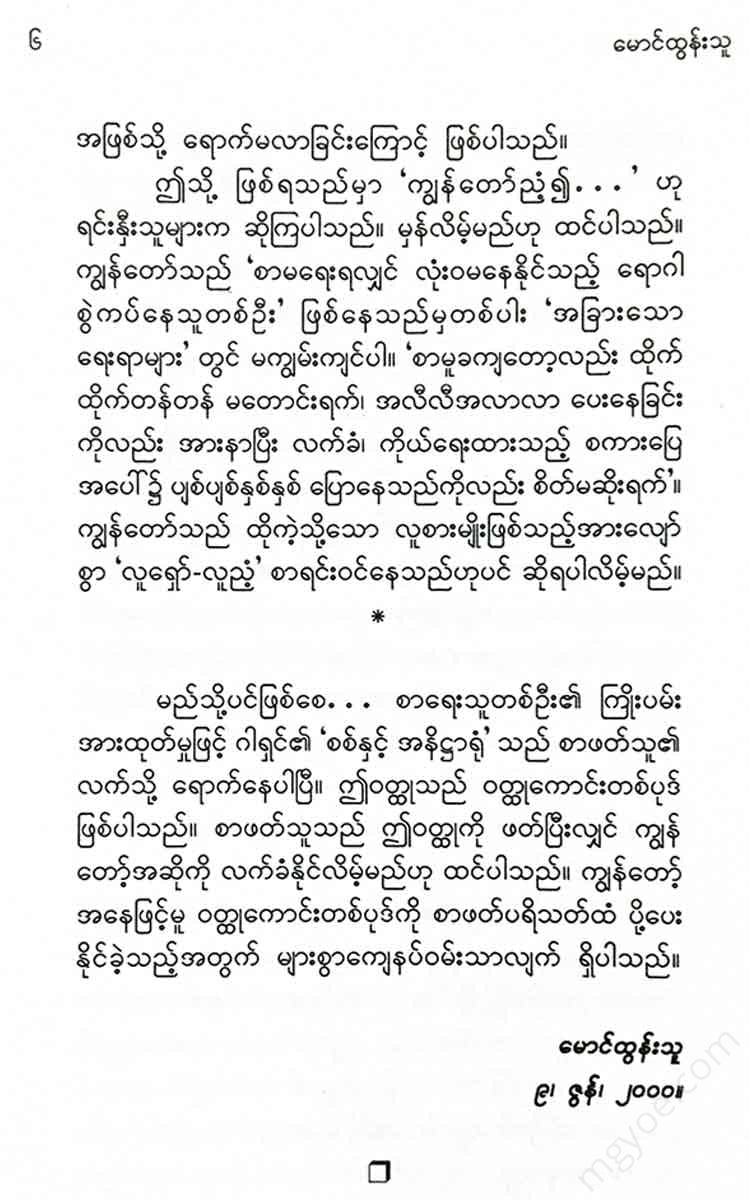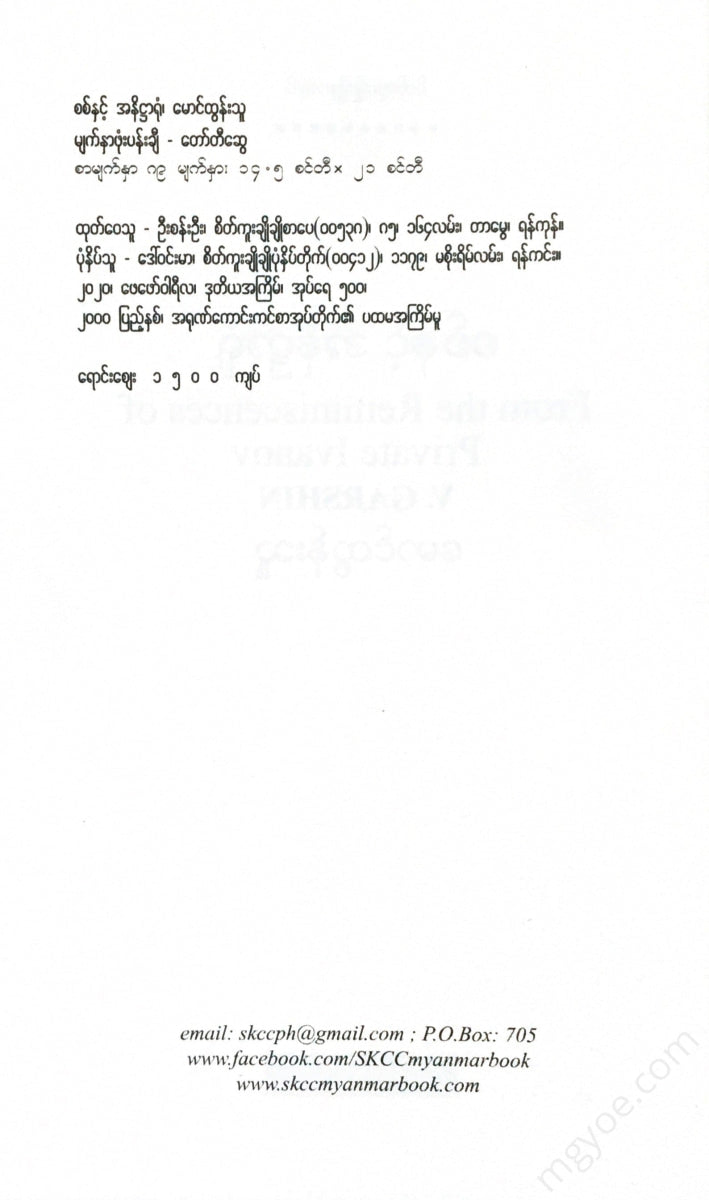စိတ်ကူးချိုချိုစာပေ
Maung Tun Thu - War and Death
Maung Tun Thu - War and Death
Couldn't load pickup availability
On May 4, 1877, I arrived in Kishinev. Within half an hour of my arrival, the 56th Brigade passed through the city. I had come here to join a regiment and go to the battlefield. So, at four o'clock in the morning on May 7, I was standing with other soldiers on the street outside the lodgings of the commander of the 222nd, Skarobelsky Infantry Regiment, Colonel.
I am wearing a greatcoat with red shoulder patches and blue badges. I have a helmet with a blue badge on my head and a backpack on my back. I have ammo pouches attached to my waist belt and I am holding a very heavy rifle in one hand.
The regimental band was playing the marching song. I could see the colored flags being carried from the colonel's room. Suddenly, a voice shouted an order. The soldiers raised their guns and saluted. Then I heard a terrible noise. I could also hear the colonel shouting orders. His orders were followed by the battalion and company commanders, and the officers of the army. The things that happened because of these orders were very complicated. I could only see the movement of the greatcoats. I could also hear the rhythmic marching footsteps accompanied by the music of the band.
I tried to keep pace with my comrade. The knapsack on my back pulled me back, but the bullets on my belt pulled me forward. The rifle slung over my shoulder was often unwieldy. The greatcoat collar rubbed against my neck, making it uncomfortable. There were few unpleasant minor disturbances, but the sound of the marching band, the orderly march of the company, the fresh morning air, the jingling of bayonets and the sun-browned faces, all of which were sure to strengthen a man’s spirit.
Even though it was early in the morning, people were already standing outside their houses in droves. Some hadn't even changed their clothes. They were looking out of the windows. We were marching along the straight road. We passed the market. In the middle of the market, the Moldavians were already arriving with their big ox carts.
The road we were on went up the hill and passed by the town cemetery. The morning was cold. The snow was falling. The trees in the cemetery were hazy in the mist. If you looked outside, you could see the tombs. We were passing by the cemetery on our right. I thought the cemetery was looking at us in an incomprehensible way. I thought it was saying, “You... why do you want to die in a foreign country, thousands of miles away, when you can die here? Why don’t you want to rest and rest when you can die here in peace and have your bodies rest under my wooden crosses and stone slabs? Stay here.”
But we do not. A mysterious and incomprehensible force is pulling us. This force is infinitely greater than any force that is absent in human life. If we were individuals, we would go home separately. If we were in a crowd, we would just keep going. This is not because of a sense of respect for order. It is not because of a lack of understanding of a specific issue. It is not because of hatred for an unknown enemy. It is not because of fear of punishment. But, as I said earlier, it is because of a mysterious and unknowable force. This force is the force that leads humanity to the great massacres. It is the primary force behind all the suffering and suffering of humanity.
On the other side of the cemetery, there was a very wide and deep valley, hidden in the mist. It was raining heavily. The clouds were drifting here and there in the sky. The sunlight was breaking through the scattered clouds. The raindrops that fell at an angle were silver in the sun.
The mist was clinging to the green slopes of the valley and slowly rising. If you looked through the mist, you could see the battalions marching ahead of us. Every now and then you could see the gleaming bayonets. You could see the guns, which shone like stars as they came into the sunlight. Sometimes the clouds would thicken and the darkness would cover us. The rain was still heavy. After we had been marching for an hour, I noticed that raindrops were falling on my back.
The first day of the march was not very far. We had to march to the village of Gorny, which was only eighteen versts from Kishinev. But I was not used to traveling with heavy loads weighing from twenty to twenty-five pounds, so I could not sit down immediately when I arrived at the small cottage where we were camped. I stood leaning against the wall for ten minutes, my backpack on my back, my rifle in hand. A soldier who had gone into the kitchen to get dinner saw my condition and took pity on me. So he came back and brought me dinner too. But by the time he came back, I was already asleep.
I woke up at four in the morning. I was awakened by the sound of the “wake-up call.” Five minutes later, I was walking along the muddy, muddy path under the pouring rain. A figure with a brown leather backpack was moving in front of me. I could hear the rattle of the rifle slung over his shoulder and the canister slung over his shoulder. There were many figures moving on either side of me and behind me.
For the first few days I didn’t know anyone very well. The 222nd Infantry Regiment was the regiment I was assigned to. The men in this regiment were mostly peasants from the Vyatka and Kostroma regions. They had round faces, high cheekbones, and a swarthy complexion from the cold. Their eyes were narrow, and their hair and beard were a light reddish brown. I remembered some of their names, but I didn’t know what tribe they came from. After about two weeks I vaguely recognized the two men who were closest to me. One was the man who walked alongside me. The other was the man next to the soldier in the rear, whom I always saw in front of me. I called them “Fyodorov and Zahidov.” But I often got them wrong by name. In fact, they didn’t look much alike. I'm calling at the wrong number because I don't look like a match.
Fyodorov was a corporal. He was small in stature, but his body was rather stout. He was a young man of about twenty-two. He was neither short nor tall, had a beautiful nose, a moustache, and blue eyes. When the officers gave the order to sing a marching song, he would lead the song. When the chorus came, the whole company would join in, so the voices were loud.
Fyodorov was a native of the Vladimir province. He came to St. Petersburg as a child. But the "pleasures" of the capital could not spoil him. He was taught to be a good man. Among all the things he was taught was to read newspapers and to use polite words and expressions.
“Mr. Ivanov, as you know,” he said to me. “Compared to Uncle Zahidov, I am, in fact, more rational. Because I have been influenced by the influence of St. Petersburg. There is culture in St. Petersburg. In their village there is only ignorance and rudeness. But he is older, has he not gone through many twists and turns of fate and changes of circumstances? So, if you say that he has more experience, you can say that. That is why I do not want to shout at him, hiss, scold him, or yell at him. I am a corporal in the company, but I am twenty-two years old, and he is forty.”
The man he spoke of, Uncle Zahidov, was a big, strong man, with a rather evil face, a strong man. He was dark-skinned, with high cheekbones and narrow eyes. He never smiled. He never spoke. He was a very quiet man. He had previously earned his living as a carpenter. When our army was formed, he had been on indefinite leave. He had only a few months left before he was finally allowed to leave the army. But when the war suddenly broke out, Zahidov left his wife and five young children at home and returned to the army.
He is always gloomy, but he has his children. He is compassionate. He is also very strong. It is amazing how I have mistaken these two people, who are so different from each other. But within the first few days, they both look the same to me. Both are pale and seem to be suffering from severe cold. And both show signs of extreme fatigue.
The rains have been falling regularly every day in the first half of May. We are still marching without stopping. The clay is thick.
